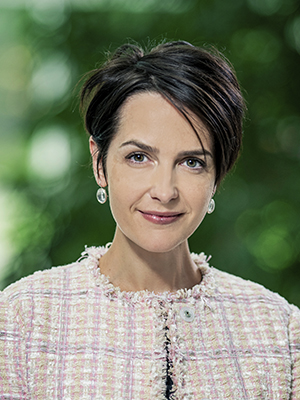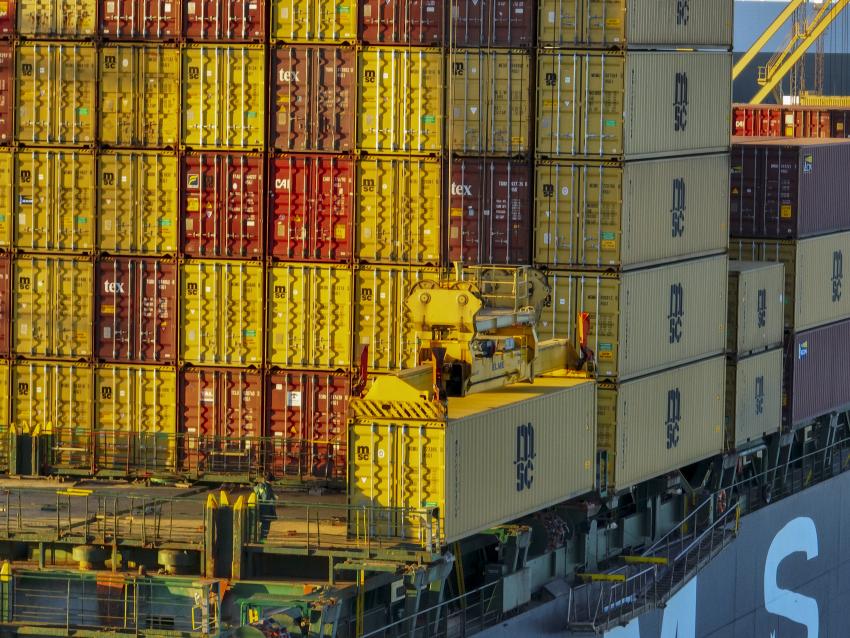The amount of cargo increased by 10% compared to 2021 and the port's largest container stevedore company, “Baltic Container Terminal” (BCT), achieved a record-high cargo turnover rate, exceeding the previous year result by 16%. Last year BCT transshipped 326 thousand TEUs, which is the highest annual turnover in its history. The growth in container cargo turnover can be attributed to the impact of the geopolitical situation on global logistics chains, affecting cargo movement not only in the Baltic region, but worldwide.
According to market analysts at the Freeport of Riga Authority, the statistical data of all ports in the Baltic region show the impact of the war on container cargo transportation. The port of St. Petersburg, which was previously the largest container port in the region, lost 64% of its container cargo volume in 2022. However, the ports of Riga, Klaipėda, and Tallinn saw an increase in container cargo turnover, as well as the Finnish ports of Helsinki and Hamina/Kotka.
BCT Board member Dmitrijs Kiselevs attributed the growth to two trends related to the war started by Russia in Ukraine and the resulting changes in logistics chains. “Since the start of the war, the Baltic Sea container lines have boycotted Russian ports and used the container terminals of the Baltic countries to place and store containers intended for the Russian market, leading to a rapid increase in turnover at the BCT terminal. Later, exporters and importers adapted to the situation and used the Port of Riga to dispatch goods that were previously sent via Russian ports, resulting in an increase in the flow of Russian export containers and volume of import containers, which were sent to Central Asian countries,” continued Dmitrijs Kiselevs.
“Undoubtedly, the success of BCT in 2022 was attributed to the favorable geopolitical situation that created new logistics opportunities for our terminal. Still the intensive work and investments made over the years in the company's infrastructure and work efficiency should not be underestimated. The company was able to adapt to the new situation by quickly processing and storing a high volume of containers and maintaining strong customer relationships. We have proven to our clients that we are able to operate efficiently and find a solution in any situation,” added Dmitrijs Kiselevs.
BCT is one of the oldest terminals of the Port of Riga, which has maintained its efficient modus operandi and importance throughout the years. In the early 1980s, the Port of Riga was selected as the only port in the Baltic States ideally suited for the construction of a container terminal to meet the growing demand for container transport from and to the main industrial centers of the former Soviet Union. The company started operating as SIA “Baltic Container Terminal” in 1996, while in 1999, the Maltese holding “Mariner” became the sole shareholder of BCT.
For decades BCT has invested in terminal’s operational efficiency - in its infrastructure modernization, terminal digitization and staff training, leading to its status as the fastest growing container terminal in the Baltic States.
Container cargo with 460.7 thousand TEUs turnover in 2022 was the third largest type of cargo in the port of Riga. The container cargo transshipment volume at the terminal increased by 10.8% compared to 2021. Six regular container shipping lines operated at the port of Riga in 2022, with all of them renewing their contracts for 2023.
Information for media

- [email protected], +371 670 308 53
- Freeport of Riga Authority
- 12 Kalpaka blvd, Riga, Latvia, LV-1010
 English
English























